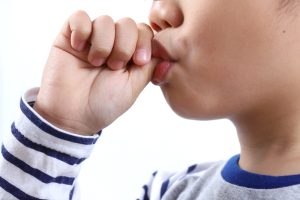Children’s behaviour can be a big motivation for families to change how they eat.
There has been an explosion in the diagnosis of behavioural issues such as ADD and ADHD in the last generation.
This is partly driven by a change in expectation of how children should be behaving, but also due to the change in diet and lifestyle that has happened over the last 50 years.
Our society now has so much stimulation, adults and children find it hard to switch off.
Whether your child has a diagnosis or not, if you want to address behavioural challenges naturally, here are some things you can start to work on right away.
Nutrition and child behaviour:
There are a few different things to look at when it comes to food and behaviour.
- Hypoglycaemia
When a child’s blood sugar drops too much (think hangry!), their behaviour can quickly deteriorate.
If you know your child is prone to outbursts of bad behaviour when they haven’t eaten for a while, you need to plan for frequent ‘snacks’.
I hate to use the work ‘snack’ as people immediately think of ‘snack food’ and bring out the rice crackers, rice cakes and other processed food.
If you think your child would benefit from eating frequently, make sure they have access to quality snacks.
Choose nutrient dense, quality snacks like these:
- hummus and carrots
- a boiled egg
- some chicken and avocado.
Giving ‘cardboard food’, like rice crackers is filling them up with empty calories.
This starves the good bacteria.
It also sends blood sugar on a roller coaster, the exact thing we are trying to avoid.
There should be protein, fat and a vegetable at every meal or snack.
- Sugar:
Studies show that hyperactive children eat more sugar than non-hyperactive children.
The rocket fuel boost that children get from sugar will cause their behaviour to worsen.
All sugar and refined carbohydrates should be removed from the diet.
This includes:
- soft drinks
- juices
- lollies
- ice cream
- chocolate.
These should be replaced with nuts and seeds, and real food.
- Food sensitivities:
Processed food is full of chemicals that we should not be eating, such as artificial colours, flavours and preservatives.
Children are often the canaries in the coal mine, as they are more sensitive to these chemicals.
We should all learn from these sensitivities.
Many of these additives now carry warning labels in some countries, as studies have shown the negative effect on behaviour from consuming them.
By eating real, whole foods, it is easy to avoid these chemicals.
- Food allergies:
Allergies and intolerance are very common in children and can negatively affect their behaviour.
The six foods most likely to cause a reaction are wheat, dairy, eggs, peanuts, corn and soy.
Any food can be a culprit however, so thorough investigation is necessary. To determine the allergies, you can do allergy testing, or an elimination diet.
- Salicylates:
Foods high in salicylates are some of the most healthy foods, but lots of children are sensitive to them, which affects behaviour.
Don’t avoid healthy foods high in salicylate long term, but focus on healing the gut instead.
By improving gut health, you can improve tolerance to high salicylate foods.
Increasing omega 3 fats can make salicylates less of an issue, so try supplementing with a high dose of omega 3.
It is important to note that the fish oil you buy in the supermarket very cheaply is not the best way to supplement.
- this fish oil can have high levels of contaminants such as mercury
- the fat can be oxidised through improper handling
- the dose is low so you have to take lots and lots of capsules.
For kids, I prefer a high quality liquid, so only a small amount is needed.
What supplements help children’s behaviour:
- Multi-vitamin:
A high quality multivitamin supplement can improve brain biochemistry and correct lots of mild deficiencies.
Sure, a child should be able to get all the vitamins and minerals from their diet. This usually doesn’t happen, for a few different reasons.
- Lots of children are not eating enough fruit, vegetables or high quality protein.
- Vegetables grown in depleted soil have much lower levels of vitamins and minerals than organically grown ones. So if your child isn’t eating organic produce, they may be missing out
- If a child’s gut health isn’t great (through multiple courses of antibiotics for instance), they might not be absorbing the vitamins and minerals from their diet as well as they should be.
Stay away from lollies masquerading as multivitamins. They have too much sugar and not enough vitamins
2. Magnesium:
This is a very calming nutrient.
Low levels of magnesium can lead to fidgeting, restlessness, and insomnia.
Good food sources of magnesium include:
- almonds
- cashews
- eggs
- figs
- leafy greens.
In the short term, your child might need a supplement to get their symptoms under control while you improve the dietary intake of magnesium.
- Essential Fatty acids:
These are nutrients for the brain, and important for concentration.
Children with behavioural issues will often be low in essential fatty acids.
If your child has excessive thirst, dry skin, eczema and asthma, they may be deficient in essential fatty acids.
You can do a blood test if you want to check, or you can go ahead and supplement with evening primrose oil or fish oil, and increase foods like linseeds or walnuts in the diet.
If you can’t get evening primrose oil into your child (try my bliss ball recipe), try rubbing a teaspoon into the skin twice a day instead.
- Zinc:
Zinc is often deficient in children with behavioural issues.
Children who have had 3 or more courses of antibiotics before the age of three can be low in zinc.
This is because antibiotics disrupt gut health, and therefore absorption of nutrients.
Another reason for low zinc is pyroluria (a genetic condition leading to low zinc and vitamin B6).
Before you supplement with zinc, or if you want to know if your child has pyroluria, you need to do a blood test.
Foods such as:
- beef
- egg yolk
- sunflower seeds
- pumpkin seeds
- seafood
are high in zinc, and you can increase these without doing a blood test – it’s hard to have too much of a nutrient through food, but it can happen through supplementation
- Probiotics:
These good bacteria are great for dealing with gut issues.
Gut issues are very much related to behaviour issues.
Not all probiotics are created equal however, and some will help with behaviour more than others.
Depending on your child’s overall health and symptoms, I can recommend a specific therapeutic probiotic.
Why do I recommend spending money on some biochemical tests?
If a parent brings their child to see me with behavioural concerns, I like to do some tests to start off with.
Although testing has some cost associated, it removes a lot of the guess work. With solid information, I can construct a treatment plan which is much more specific and can get to the root cause more quickly.
In the end, it often works out cheaper to have the information from the testing up front.
This looks at heavy metal toxicity.
High levels of mercury or lead can be a factor in behaviour issues. These contaminants are all too common, especially in some areas of the country.
Doing a hair test can identify if heavy metals are a problem, and then steps can be taken to reduce the heavy metals.
This a urine test which can look for vitamin deficiencies, yeast over-growth and neurotransmitter levels.
Neurotransmitters are brain chemicals which are really important for behaviour.
For example, one neurotransmitter is called dopamine. Low dopamine can lead to behaviour issues.
This test can also show if candida (yeast) is a problem. Too many antibiotics can lead to yeast overgrowth and cause your child to act a bit drunk!
- Blood tests:
I also recommend some blood testing to look at magnesium levels, blood sugar, zinc, copper and essential fatty acids.
Deficiencies in magnesium, zinc or essential fatty acids can be a trigger for bad behaviour.
High copper levels can also be a problem.
And if blood sugar drops dramatically, you child can act out.
This can be a very useful shortcut, instead of doing months of tedious elimination and reintroduction of suspect foods.
Food allergies and intolerance can be quickly identified and the offending foods removed.
Children’s behaviour can be vastly improved by making some changes to their diet and lifestyle, and this is an area that I focus on a lot.
As you can see there are many options when it comes to improving your child’s behaviour through specific foods and nutrients.
Get in touch for a FREE 20 minute health check if you would like to learn more about how I can help with your child’s behaviour.




